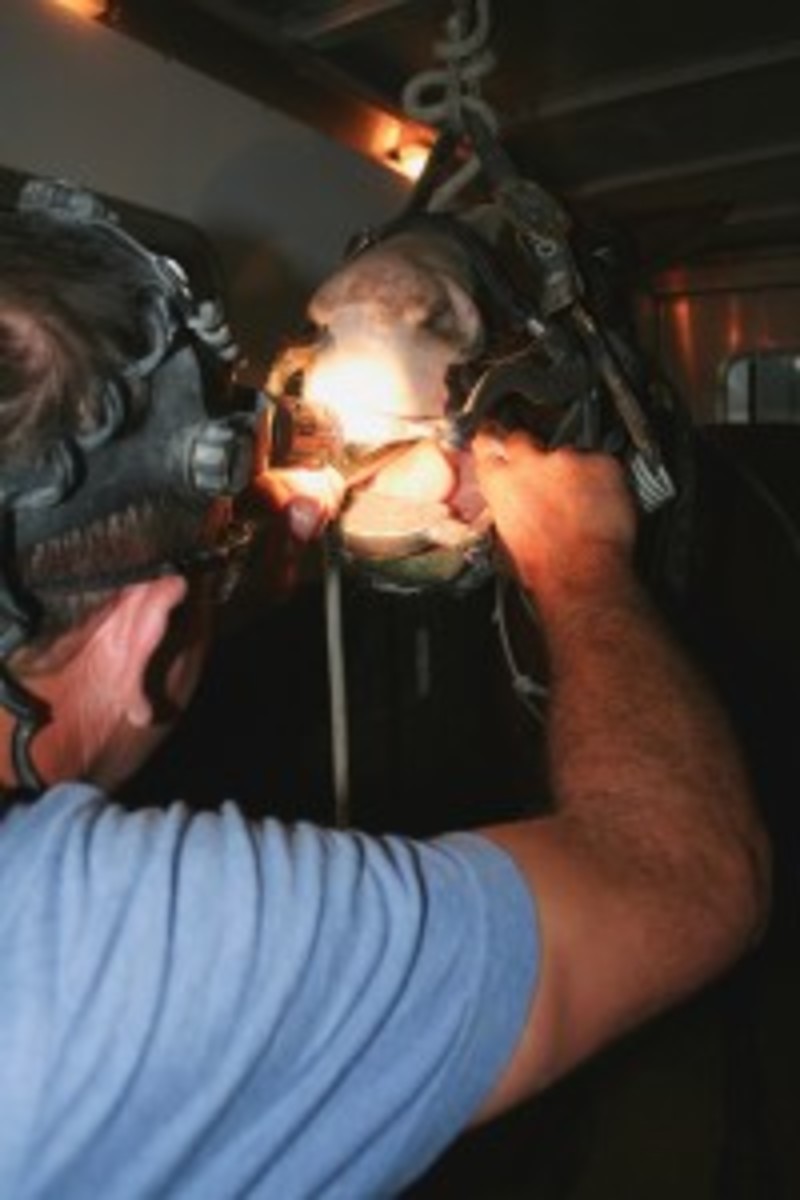Horses have different types of teeth than people. The horse’s cheek teeth are made for grinding roughage. They are referred to as compound teeth, meaning there are different types of material to make grinding more efficient.

Horses’ teeth also keep erupting and being worn down, sometimes irregularly, which results in sharp enamel points occurring on the lateral edge of the upper and medial edge of the lower cheek teeth. Smoothing off these sharp points is the basic reason for “floating” teeth.
I would like to comment on the timing and needs for floating teeth in horses. There are two reasons to do this procedure. First of all, some horses can develop problems that make chewing uncomfortable, or mechanically difficult, due to malocclusions or uneven wear. These horses can lose condition and waste feed due to poor mastication. The majority of horses don’t need floating to facilitate chewing very often in their lives, in my opinion.
The second reason for floating teeth in horses is to accommodate the bit. Pressure with a bit, especially a broken mouthpiece or snaffle, can cause problems by pulling the soft tissue of the cheek against sharp edges or enamel points on the pre-molars (the first three cheek teeth). Young horses can have very sharp points and be eating fine. In my opinion, horses that are being “started” as 2-year-olds should have their teeth done to avoid potential resistance from discomfort at this time. This occasion is also the time to remove wolf teeth, if the horse has them, because these vestigial teeth sit right in front of the first premolar and can be sharp.
Horses’ teeth keep erupting, so it’s not a static situation once the teeth are smoothed with dental floats. Horses also go through a change from deciduous (baby) premolars between their 3- and 5-year-old period. The new permanent teeth that come into wear often have sharp points, so some younger horses need dental attention more often than older horses to avoid problems with the bit.
I believe there is more reason to float teeth for acceptance of the bit than to accommodate chewing. Problems with horses resisting the bit can be prevented or solved by correcting problems with the teeth. However, I don’t believe that just keeping the teeth cared for is the primary reason for horses responding to bit pressure nicely. That trait is far more dependent on the skills of the rider.
Too much constant pressure, or trauma, on the “bars” of a horse’s mouth results in insensitive scar tissue and hard-mouthed horses. The “bars” are interdental space on the low jaw (mandible), where the bit seats. My father, who was an excellent reinsman, always talked of the condition of a horse’s bars as being more relevant to supple performance than the state of the horse’s teeth.










